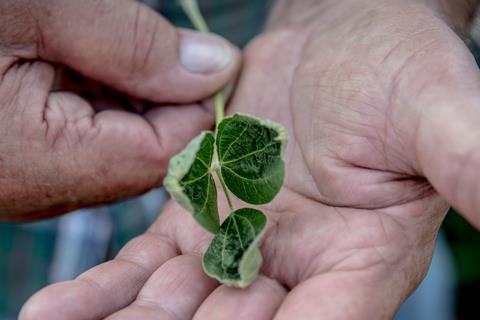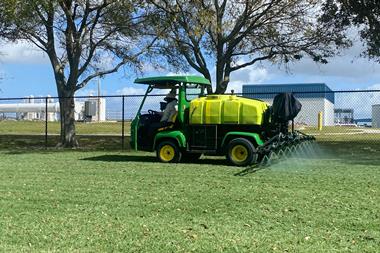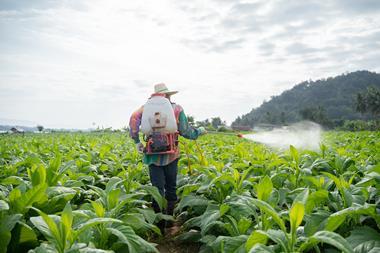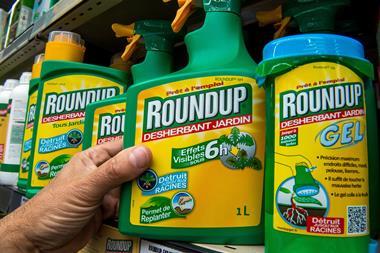Judge overturns 2020 reapproval of three products over Environmental Protection Agency’s procedural failure

A US court has revoked approval of three dicamba-based herbicides, after concluding that the Environmental Protection Agency (EPA) violated pesticide registration procedures in approving those product registrations.
The judge’s 6 February ruling overturns the EPA’s reapproval of dicamba in 2020, which included additional application restrictions designed to prevent the products from drifting in the wind and damaging nearby crops. The Washington DC-based Center for Food Safety (CFS) and other plaintiffs claim these measures have have failed.
The judge found that, in 2020, the agency failed to notify the public and seek comments as required when re-approving Bayer’s XtendiMax (formerly from Monsanto), BASF’s Engenia, and Syngenta’s Tavium.
Dicamba has been shown to damage non-target plant species through spray or vapour drift or volatilisation. In June 2020, Bayer agreed to pay $400 million (£318 million) to settle ongoing legal action involving damage caused by dicamba when it drifted onto crops not engineered to resist it.
The new legal decision is ‘a sweeping victory for family farmers and dozens of endangered plants and animals,’ according to CFS. Since dicamba was approved for spraying ‘over-the-top’ of crops engineered to be resistant to its effects, its use has increased twentyfold, the environmental advocacy organisation stated. The EPA has estimated that three-quarters of cotton crops and two-thirds of soybean crops across the US – 65 million acres – are resistant to dicamba.
Meanwhile, Bayer said it disagrees with the ruling and is ‘assessing’ its next steps. ‘We also await direction from the EPA on important actions it may take in response to the ruling,’ the company added. ‘Our top priority is making sure growers have the approved products and support they need to safely and successfully grow their crops.’ There is concern that the court’s order could threaten the livelihoods of soybean and cotton farmers who rely on over-the-top dicamba to control resistant weeds. It also creates an immediate financial loss from not being able to use the product that they have ordered, the American Soybean Association argued.
BASF also indicated that it is reviewing its legal options and awaiting direction from the EPA in light of the order, as did Syngenta. ‘The use of dicamba is integral to controlling broadleaf weeds and invasive plants,’ Syngenta stated. ‘It is imperative that farmers have access to newer dicamba technologies as they work to protect their livelihoods, supply food, and meet ever-increasing weed control challenges in an environmentally safe and sound way.’

















No comments yet